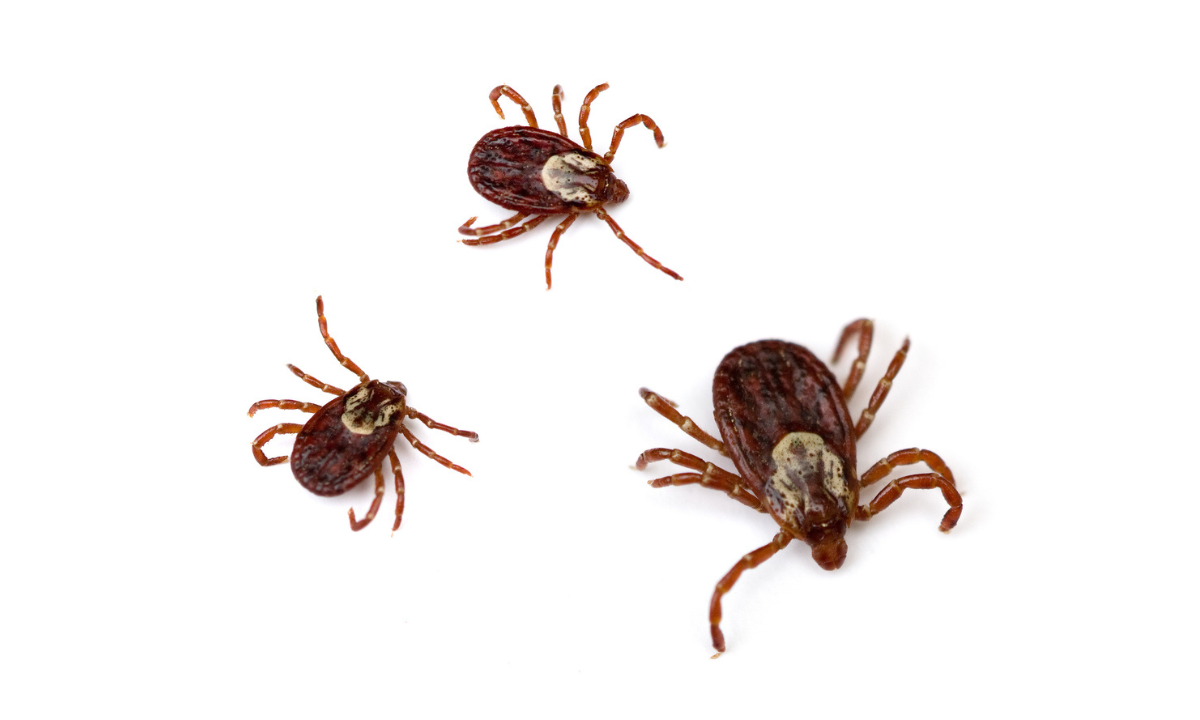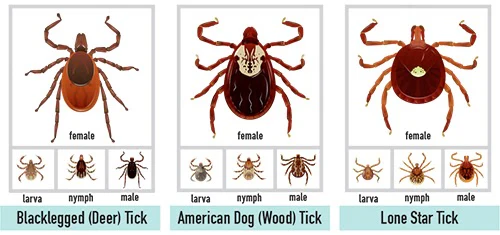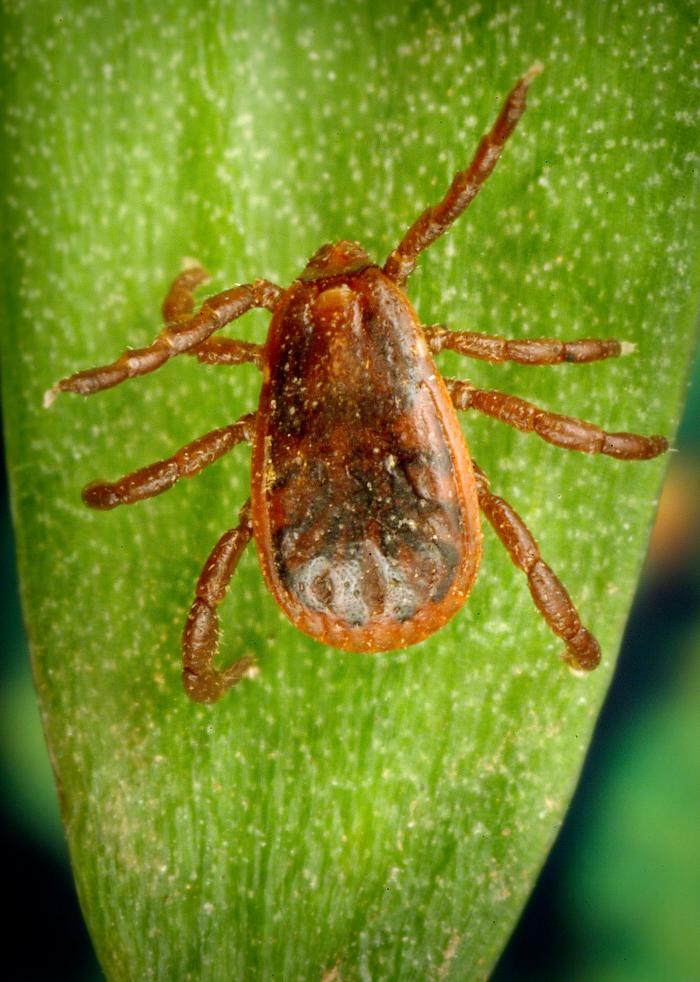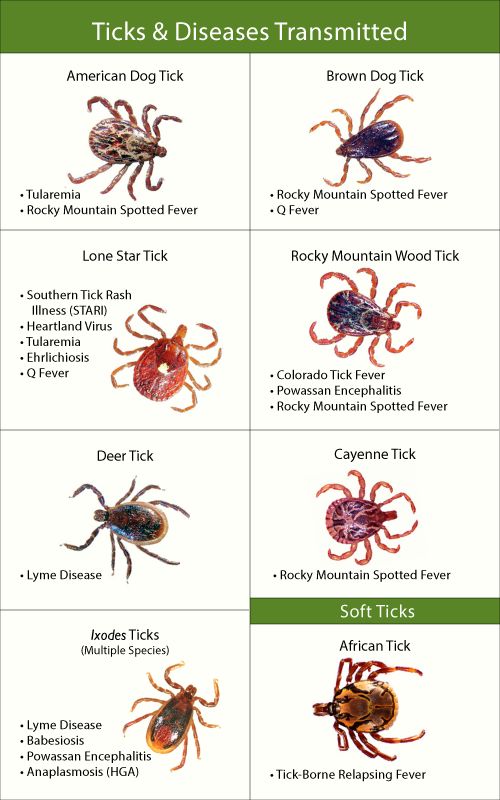Ticks

Ticks in Massachusetts
Ticks are not your average household pest—they’re parasites that feed on the blood of humans and animals, and they can transmit serious illnesses. In Massachusetts, ticks are more than just an annoyance; they are a well-known carrier of Lyme disease, a bacterial infection that can have long-term health effects if not treated promptly.
For homeowners in Cape Cod towns such as Chatham, Eastham, and Truro, ticks are a constant concern, especially during the warmer months when outdoor activities peak. These pests don’t invade homes in large colonies like ants or rodents, but they lurk in yards, wooded trails, and even garden shrubs—waiting for a host to pass by.
The Most Common Ticks in Massachusetts
There are several species of ticks in the region, but the ones of most concern to homeowners and pet owners are:
Blacklegged Tick (Deer Tick): The primary vector of Lyme disease in Massachusetts. They are small, with adults being roughly the size of a sesame seed, and they prefer wooded and grassy areas.
American Dog Tick: Larger than deer ticks, these ticks can transmit Rocky Mountain spotted fever and other diseases.
Lone Star Tick: Less common but increasingly reported in parts of the state, this tick can transmit ehrlichiosis and other illnesses.
Understanding which ticks are in your area can help you take preventive measures more effectively.

Where Do Ticks Live Around Your Home?
Ticks are outdoor pests, but that doesn’t mean your home is safe. They thrive in tall grass, wooded edges, leaf litter, and overgrown landscaping. They also hitch rides on pets, wildlife, and even clothing, eventually making their way into your living spaces.
In Massachusetts, ticks are especially active in late spring through early fall, though mild winters can extend their season. Properties near wooded areas or with frequent wildlife activity—such as deer or rodents—are at greater risk of infestation.
Why Ticks Are a Health Concern in Massachusetts
The biggest danger ticks pose is the diseases they can transmit. Lyme disease, the most common tick-borne illness in the state, can cause symptoms ranging from fever and fatigue to long-term joint pain and neurological issues if untreated.
Other tick-borne diseases include anaplasmosis, babesiosis, and Powassan virus, all of which have been reported in Massachusetts in recent years. Even a single tick bite can be harmful, making prevention essential for protecting your family and pets.

How to Check for Ticks After Outdoor Activities
Because ticks are small and their bites are painless, many people don’t realize they’ve been bitten until symptoms appear. After spending time outdoors, especially in wooded or grassy areas:
Perform a full-body tick check, paying attention to hidden spots like behind the ears, underarms, and along the hairline.
Inspect pets carefully, as ticks can latch onto their fur and be brought inside.
Shower soon after outdoor activity to wash away ticks that haven’t yet latched on.
Dry clothes on high heat to kill any ticks that may be clinging to fabric.
Tick Prevention for Your Yard and Family
The best way to avoid tick bites is to make your property less inviting to these pests and take precautions when spending time outside.
Keep grass trimmed short and remove leaf litter.
Create a barrier between wooded areas and your lawn using gravel or wood chips.
Use tick prevention products on pets year-round.
Wear long sleeves, pants, and insect repellent when hiking or working in tick-prone areas.
Consider professional yard treatments to reduce tick populations around your home.

ServPest’s Tick Control Solutions
Unlike indoor pests, ticks require a different approach to control because they rely on wildlife and outdoor conditions to thrive. ServPest offers comprehensive tick management programs that target tick habitats around your property, reducing their numbers and lowering the risk of tick-borne illnesses.
Our treatments are designed to be safe for your family and pets while creating a protective barrier around your yard. With our local expertise, we know where ticks hide and how to stop them from turning your backyard into a danger zone.
Take back your yard—let ServPest help you enjoy the outdoors safely.
Schedule your tick control service today.

Common Questions about Ticks
Ticks prefer the outdoors, but they can enter homes by clinging to pets, clothing, or wildlife. Once inside, they may survive for short periods.
As soon as possible. The longer a tick is attached, the greater the risk of disease transmission. Use tweezers to remove it carefully.
Yes. Some ticks remain active in cold temperatures, especially if winters are mild or if they find shelter.
No, but deer ticks are the primary carriers, and not all individuals are infected. However, caution is always necessary.
Combine personal protective measures, yard maintenance, and professional tick control services for the best results.
Keeping Massachusetts Families Safe from Tick-Borne Threats
Barnstable County, MA
Plymouth County, MA
Mon - Fri 7:00 am - 7:00 pm
Sat 8:00 am - 3:00 pm
Sun: Closed
Operation Hours: Mon-Sat: 7am - 7pm
Office: (508) 815-4842
Alternate: (508) 815-3114
info@servpest.com

